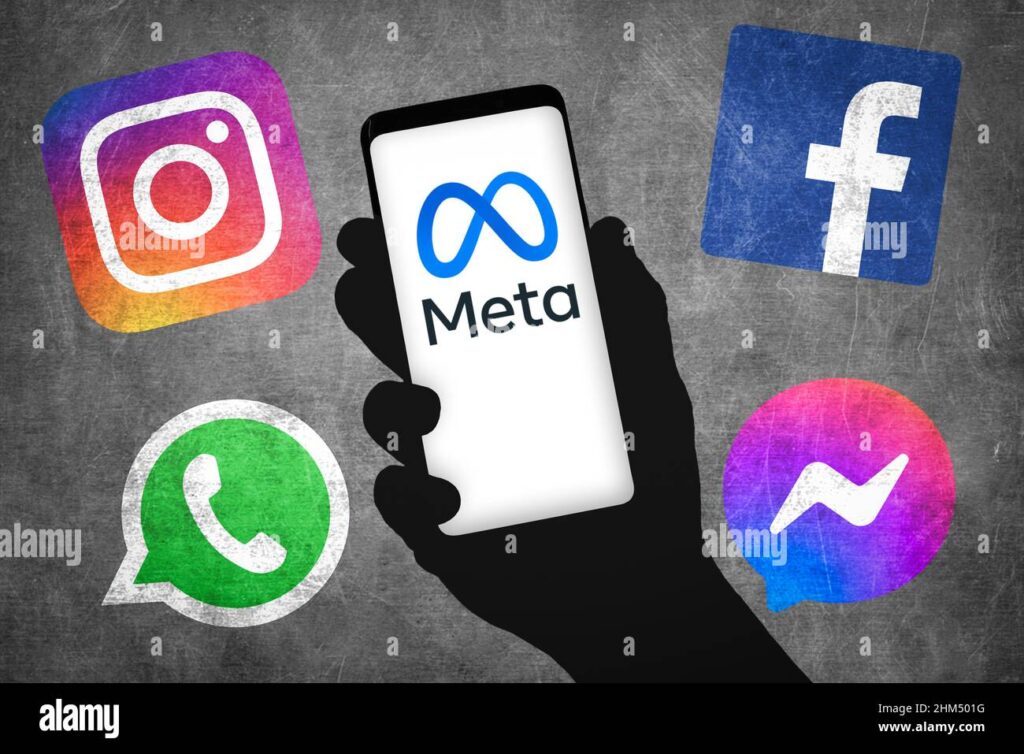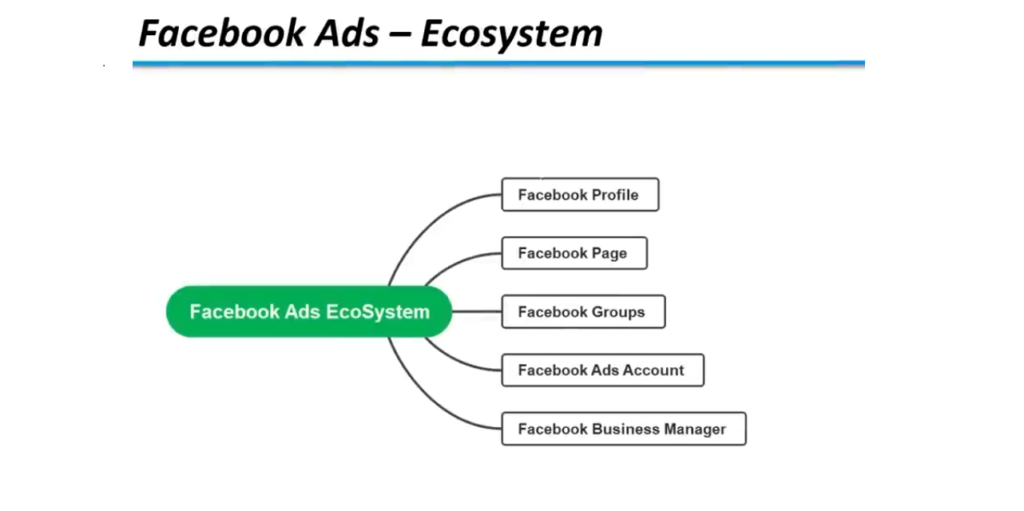
Meta refers to Meta Platforms, Inc., which is a technology is a large corporation or company that consists of diverse business units operating in different industries and the parent company of several major social media platforms. Formerly known as Facebook, Inc., the company rebranded itself as Meta in October 2021. This rebranding was part of a strategic shift to focus on the development of the metaverse, a term used to describe a collective virtual shared space.
Major social media platforms under Meta:
-
Facebook:
- Overview: Facebook is the original and flagship social networking platform. Users can connect with friends, share content, and engage in various activities, including joining groups and events.
-
Instagram:
- Overview: Acquired by Facebook in 2012, Instagram is a visual-centric platform for sharing photos and short videos. It is known for its creative and visually appealing content.
-
WhatsApp:
- Overview: Acquired by Facebook in 2014, WhatsApp is a widely used messaging app known for its end-to-end encryption. It allows users to send texts, make voice and video calls, and share multimedia content.
-
Messenger:
Overview: Originally a part of the Facebook platform, Messenger became a standalone app. It offers instant messaging, voice and video calls, and various features to enhance communication.
Facebook Ads - Ecosystem

Facebook Profile
A Facebook profile is an individual user’s personal page on the social media platform. It serves as a virtual representation, showcasing personal details, interests, and connections. Users can share status updates, photos, and life events, creating a dynamic timeline. The profile includes sections for employment, education, and contact information. Privacy settings allow users to control who sees their content. Interactions, such as likes and comments, contribute to a user’s online presence. With billions of users worldwide, Facebook profiles serve as a means to connect with friends, family, and acquaintances, fostering a digital community for personal expression and social interaction.

Facebook Page
A Facebook Page is a dedicated platform on the social media giant that allows businesses, organizations, public figures, and brands to establish a public presence. Distinct from personal profiles, Pages offer a way for entities to interact with a wide audience, foster a community, and promote their offerings or messages.
Key Features:
1. Profile and Cover Photo:
– A Page includes a profile picture and a cover photo. The profile picture is typically a brand logo or an identifiable image, while the cover photo provides a larger canvas for additional branding or promotional content.
2. About Section:
– The About section allows Page owners to provide essential information such as the business’s mission, contact details, operating hours, and location. This helps visitors understand the entity’s purpose and offerings.
3. Tabs and Sections:
– Tabs organize different types of content on a Page. Common tabs include Home, Posts, About, Photos, and more. Sections allow customization, letting Page owners highlight specific content or features.
4. Call-to-Action Button:
– A prominent Call-to-Action (CTA) button, such as “Shop Now,” “Contact Us,” or “Learn More,” directs visitors to take specific actions, enhancing user engagement and conversion opportunities.
5. Post Feed:
– Pages have a dynamic post feed where owners can share updates, news, promotions, and other content. These posts appear on the followers’ timelines, helping maintain visibility and engagement.
6. Audience Interaction:
– Followers can engage with Page content through likes, comments, and shares. Interaction fosters community building, and Pages can respond to comments, creating a dialogue with their audience.
7. Insights and Analytics:
– Facebook provides insights and analytics tools for Page owners to monitor performance. This data includes reach, engagement, demographics of the audience, and more, aiding in strategic content planning.
8. Ads and Promotions:
– Pages have the capability to run paid advertising campaigns, allowing owners to promote their content to a broader audience. This is done through the Ad Manager, offering targeting options and performance tracking.
Benefits of Having a Facebook Page:
1. Brand Visibility:
– Pages provide a platform for businesses and brands to establish a visible online presence, making it easier for potential customers to discover and engage with them.
2. Audience Engagement:
– Regular posts and interactions with followers help build a community around the brand. The real-time nature of Facebook allows for immediate feedback and engagement.
3. Marketing and Promotion:
– Pages serve as a powerful marketing tool. Owners can promote products, services, events, and promotions through targeted posts and advertising campaigns.
4. Customer Support:
– Pages can be used as a customer support channel. Customers can ask questions, seek assistance, or provide feedback, allowing businesses to address concerns promptly.
5. Insights and Analytics:
– The Insights feature provides valuable data about the audience, helping Page owners refine their content strategy, understand their demographics, and optimize for better performance.
6. Community Building:
– Pages facilitate the building of a loyal community around a brand. This community can share experiences, participate in discussions, and become brand advocates.
7. E-commerce Integration:
– For businesses, Facebook Pages can integrate with e-commerce platforms, enabling direct sales through the platform and expanding the reach of products.
8. Global Reach:
– With billions of users worldwide, Facebook offers a global audience. Pages allow businesses to reach and connect with potential customers across different regions.
In conclusion, a Facebook Page is a versatile and essential tool for businesses and organizations aiming to establish an online presence, connect with their audience, and leverage the power of social media for marketing, communication, and community building. Regularly updated, strategically managed Pages can significantly contribute to the success and growth of a brand in the digital landscape.
Facebook Group
A Facebook Group is a virtual space within the social media platform where users with common interests, affiliations, or goals can connect, share content, and engage in discussions. Groups provide a more focused and interactive environment than individual profiles, fostering community building and collaboration. Here’s a comprehensive look at the key features, benefits, and dynamics of Facebook Groups.
Key Features:
Creation and Customization:
- Users can create their own Groups based on shared interests, causes, hobbies, or affiliations. Group creators can personalize the Group with a name, description, and cover photo.
Privacy Settings:
- Groups can have different privacy settings, ranging from public (visible to anyone) to private (requiring approval to join). This allows for customization based on the desired level of exclusivity and visibility.
Group Types:
- Facebook offers various Group types, including general interest groups, buy/sell/trade groups, study groups, support groups, and more. Each type serves a specific purpose and caters to different community needs.
Membership Control:
- Group admins have control over membership. They can approve or decline membership requests, remove members, and set rules to maintain a positive and focused environment.
Discussion Threads:
- Groups feature discussion threads where members can post text, images, links, and other content related to the Group’s theme. This creates an ongoing conversation and information-sharing platform.
Events and Announcements:
- Group admins can create events within the Group, making it easy to organize meetups, webinars, or other activities. Announcements help highlight important information or updates.
Polls and Surveys:
- Group admins can use polls to gather opinions and feedback from members. This interactive feature enhances engagement and helps in decision-making within the community.
Files and Resources:
- Groups allow for the sharing of files and resources. This can be beneficial for educational groups, professional communities, or any Group where document sharing is essential.
Notifications:
- Members receive notifications for new posts, comments, and group activities, keeping them informed and engaged with the community.
Group Insights:
- Group admins have access to insights and analytics, providing data on member engagement, growth, and popular content. This helps in assessing the Group’s dynamics and making informed decisions.
Benefits of Facebook Groups:
Community Building:
- Groups facilitate the creation of communities around shared interests, fostering connections and relationships among members.
Focused Interactions:
- Unlike the broader News Feed, Groups provide a more focused space for specific discussions and interactions, reducing noise and enhancing relevance.
Support and Networking:
- Support Groups offer a platform for members to share experiences, seek advice, and provide emotional support. Networking Groups enable professional connections and collaboration.
Collaboration and Project Management:
- Groups serve as effective tools for collaborative efforts and project management. Members can coordinate activities, share updates, and collaborate on shared initiatives.
Targeted Communication:
- Group posts appear in members’ feeds, ensuring that important information and updates reach the intended audience directly.
Event Organization:
- Groups simplify the organization of events and meetups, allowing members to RSVP, discuss details, and stay informed about upcoming activities.
Brand and Cause Promotion:
- Businesses and organizations can use Groups to promote their brands, products, or causes in a more community-oriented and engaged environment.
Member Empowerment:
- Groups empower members to actively participate in discussions, share their expertise, and contribute to the collective knowledge of the community.
In conclusion, Facebook Groups play a pivotal role in building online communities and fostering meaningful interactions among users. Whether for personal interests, professional networking, support, or collaboration, Groups offer a versatile and dynamic platform for like-minded individuals to connect and engage in a shared virtual space. Group dynamics can vary widely based on their purpose, but each contributes to the diverse and interconnected fabric of the Facebook social ecosystem.